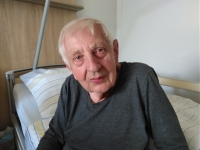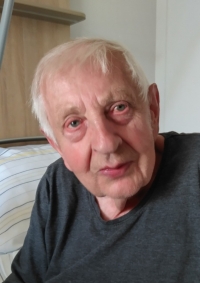We had a little, but even the little the communists took from us

Download image
Jaroslav Dolejš was born on 26 April 1942 in Kletečná near Humpolec into a family of a private farmer. His father Jan farmed two hectares and rented two more to support his family. At the beginning of the 1950s he was forced to join an agricultural cooperative farm (JZD) and worked in the cooperative with his wife Marie until his retirement. After finishing primary school in Humpolec, Jaroslav Dolejš trained as a machine locksmith in Agrostroj Pelhřimov, where he worked until the 1980s. Due to health problems, he did not have to perform compulsory military service. He heard about the invasion of the Warsaw Pact troops on the radio and, like many others, he was worried about whether it would lead to war. He heard planes flying, but there were no soldiers in Kletečná. After leaving Agrostroj, he worked for example at Neza Pelhřimov or at Čemolen in Humpolec. He watched the events of November 1989 from home, where he was recovering from a hernia operation. He welcomed the fall of the communist regime. He lived his whole life in Kletečná, and in recent years he has been living in the SeneCura home for the elderly in Humpolec.

